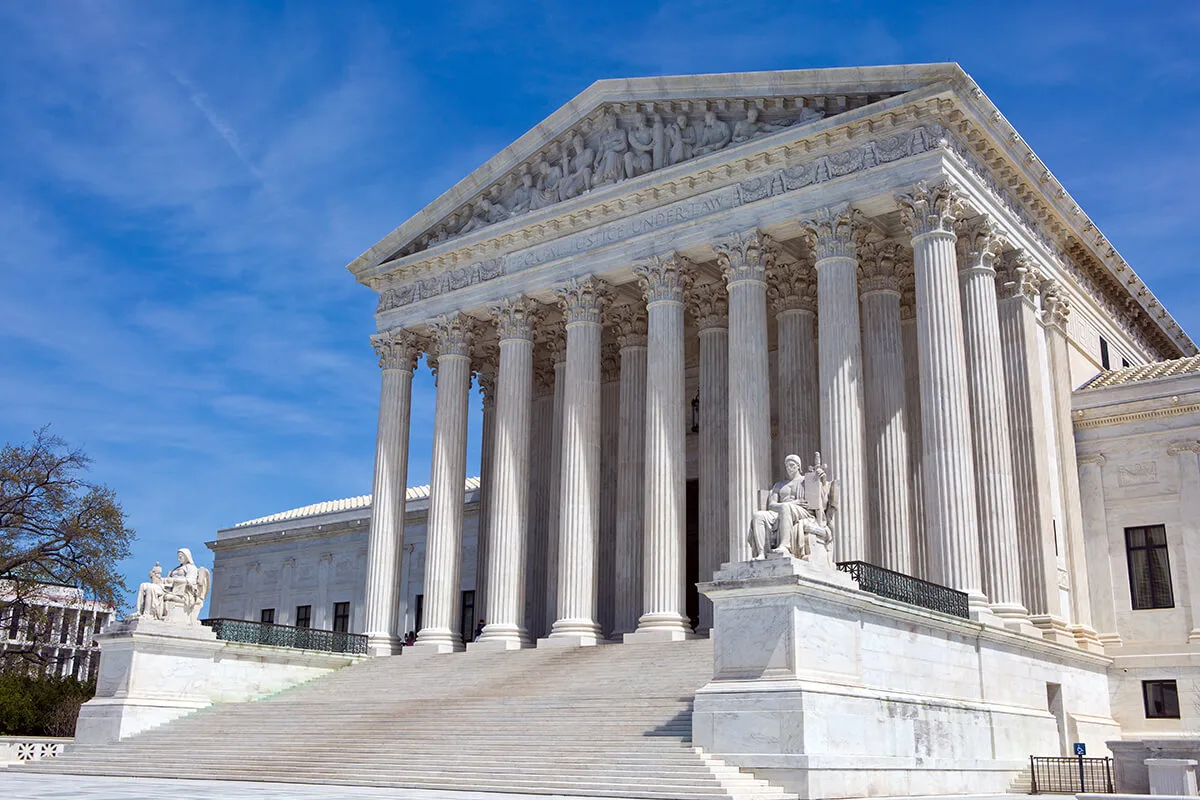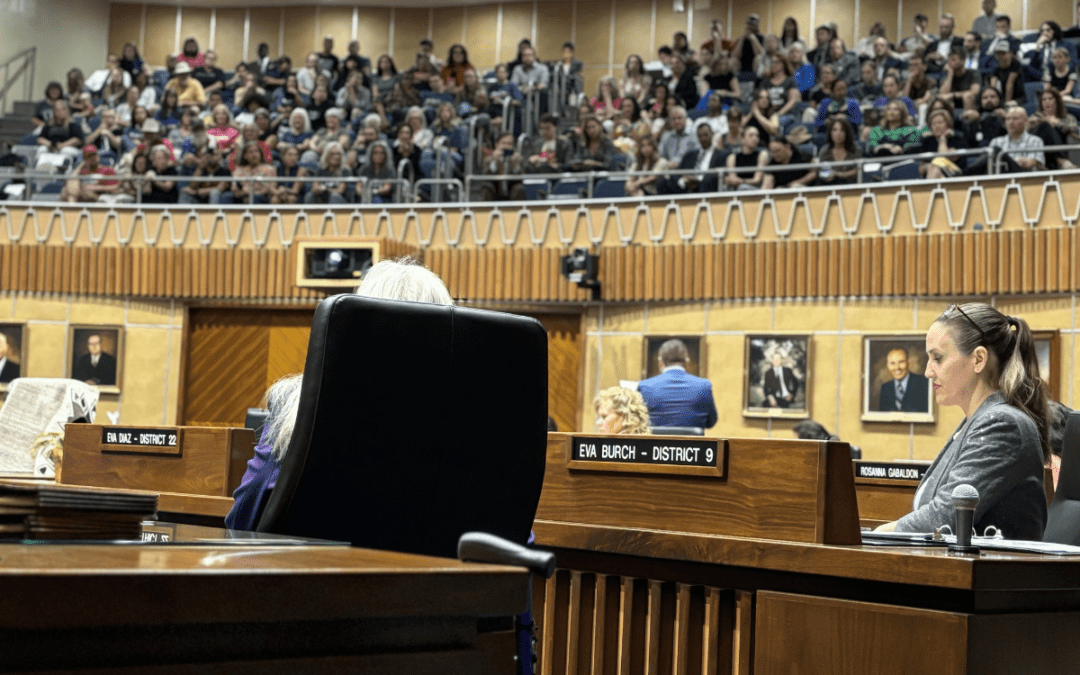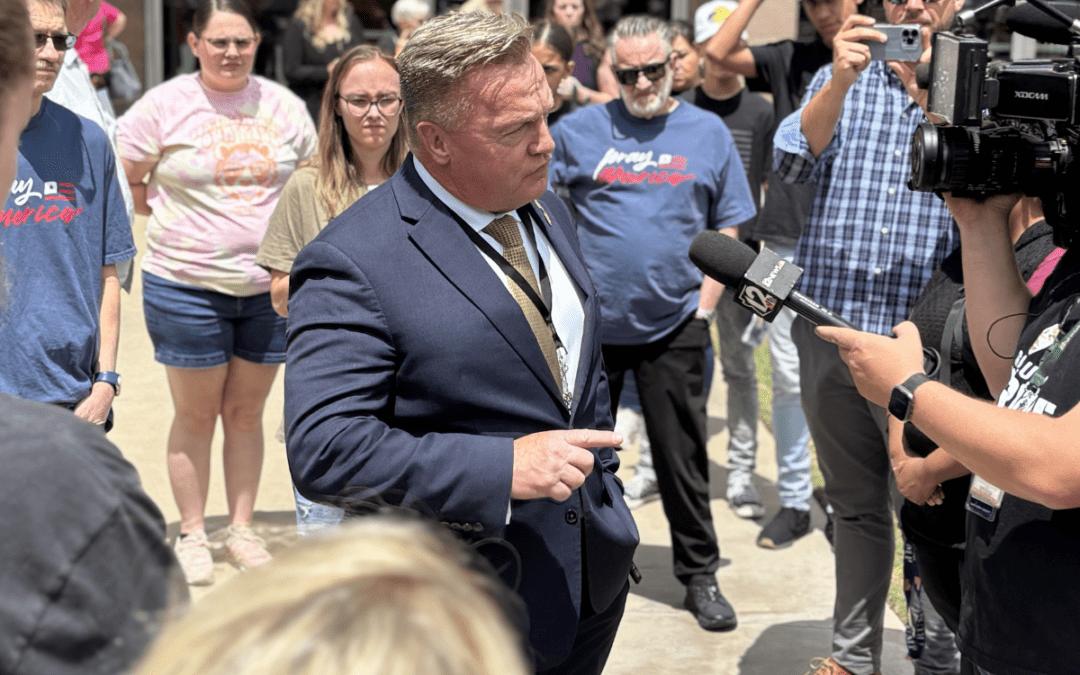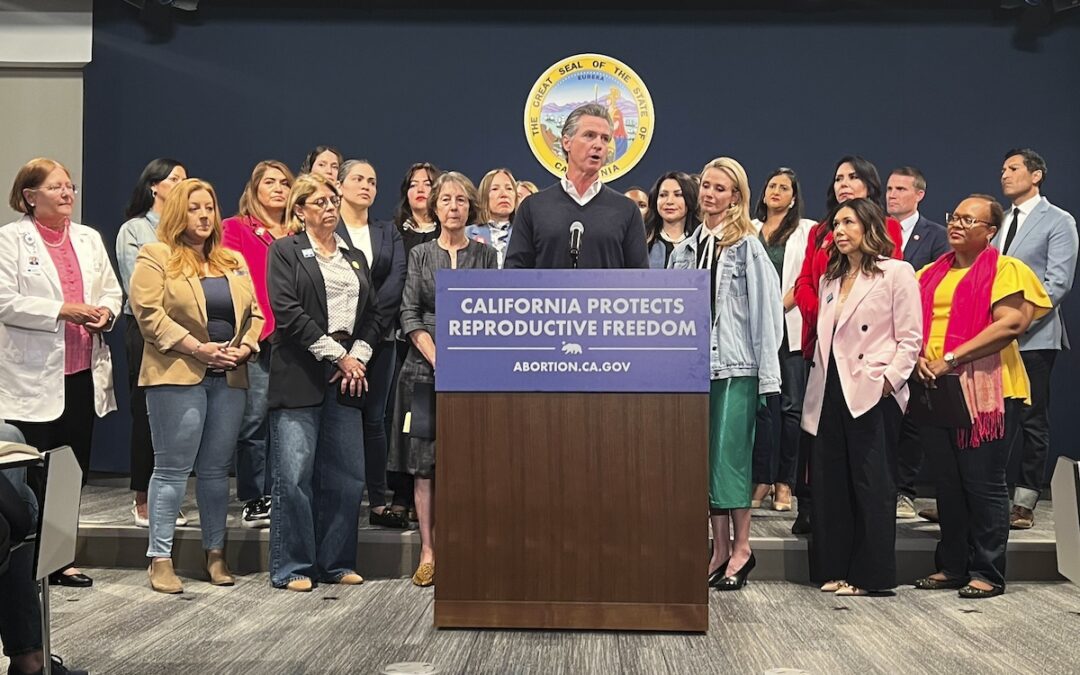
But McSally may not even get the chance to vote on a Supreme Court nominee.
Sen. Martha McSally and a majority of Senate Republicans have signaled they are ready to move quickly to vote on President Donald Trump’s upcoming US Supreme Court pick.
Trump has pledged to nominate a replacement for Justice Ruth Bader Ginsburg, a tireless champion of women’s equality and justice, who died last week, and Senate Majority Leader Mitch McConnell vowed that Trump’s nominee “will receive a vote on the floor of the United States Senate.”
McSally voiced her support, declaring on Twitter within hours of the announcement of Ginsburg’s death that “this U.S. Senate should vote on President Trump’s next nominee for the U.S. Supreme Court.”
What About COVID?
The GOP, however, has lacked urgency when it comes to a different action: passing another COVID-19 pandemic relief package.
McConnell proposed a relief bill earlier this month that only contributed a federal unemployment boost of $300 per week, compared to the $600 payments offered earlier this year, and left out other protections Democratic senators argued were critical.
Senate Minority Leader Chuck Schumer called the bill “so emaciated, so filled with poison pills, so partisanly designed.”
Republicans argued it was targeted to areas of widespread agreement, but the 52-47 vote fell well short of what was needed to overcome a filibuster. All the present Democrats opposed it, while conservative Rand Paul (R-Ky.) cast the only GOP “nay” vote. The Democratic vice presidential nominee, Kamala Harris, was campaigning in Miami and missed the vote.
The failed measure would have provided $105 billion to help schools reopen and devoted $258 billion for a second round of paycheck protection subsidies for smaller businesses. Lesser amounts would have furthered vaccine research and development and funded the Postal Service, farmers, and child care.
It did not contain a new round of $1,200 direct payments, and the $300 weekly jobless benefit would expire just after Christmas, on Dec. 27. The GOP bill also lacked money for election costs that lawmakers from both parties have supported to accommodate a huge influx of mail-in ballots.
RELATED: Trump’s Supreme Court Pick Will Impact Latinos for Generations. Here’s Why You Need to Pay Attention.
Official estimates of the measure’s cost were unavailable, but a GOP legislative aide said the cost is about $650 billion, with about half of the price tag offset by repurposing prior COVID funds.
The lack of a new relief bill has left unemployed Arizonans living on less than $240 per week and no prospect of another stimulus check to help.
Despite Arizona’s number of COVID-19 cases going down in recent weeks, the effects of the pandemic are expected to last through next year. Some public health experts expect there will be a second wave of the virus this fall and winter.
And even those who aren’t sick are still suffering the economic fallout. One researcher estimated 40% of related layoffs will be permanent.
The GOP is receiving pushback for its switch to focus on the Supreme Court, even from members of the same party.
“They’re now going to wrap themselves up in a conversation about the Supreme Court, which is important, but nobody looks good with respect to how they’ve chosen to position themselves over the course of the last four years on this issue,” Republican Gov. Charlie Baker of Massachusetts said. “What I would really like to see them focus on is the pandemic – which has killed 200,000 people in the United States of America so far, and continues to wreak havoc on our economy and our communities.”
An Early Senate Shakeup
However, McSally may not even get the chance to vote on a Supreme Court nominee.
Because she did not win an election and was appointed in 2018 to succeed former Sen. Jon Kyl, who had taken the place of Sen. John McCain when he died that fall, her Democratic opponent Mark Kelly could take her place as early as Nov. 30.
“If Mark Kelly comes out on top, HE could block President Trump’s Supreme Court Nominee from being confirmed,” McSally wrote in a fundraising pitch this week.
Republican and Democratic election lawyers agreed that Arizona law is clear: If Kelly wins, he will take office once the results are official.
Arizona Supreme Court precedent favors putting elected officials in elected positions as soon as possible, said the Tim LaSota, the former lawyer for the Arizona Republican Party and a McSally supporter.
“Somebody who has only been appointed does not have the imprimatur of the electorate,” LaSota said. “It’s sort of intuitive that the law should favor somebody who has won an election as opposed to someone who’s just been appointed.”
RELATED: Expand the Supreme Court? Arizona Did It First.
Arizona law requires election results to be officially certified on the fourth Monday after the election, which falls this year on Nov. 30. The certification could be delayed up to three days if the state has not received election results from any of the 15 counties.
Mary O’Grady, a Democratic lawyer with expertise in election law, said the deadlines are firm and there’s little room for delay.
“I don’t see ambiguity here,” said O’Grady, who was Arizona’s solicitor general under two Democratic attorneys general.
Arizona law allows recounts and election challenges only under very limited circumstances, she said.
“Usually, the Secretary of the Senate’s office goes out of its way to accommodate the new senators coming in,” former Senate Historian Don Ritchie told The Arizona Republic, which first reported on the prospect for Kelly taking office early a day before Ginsburg’s death. “The old senator is out of their office there. I mean, they actually literally put a lock on the door so their staff can’t go in.”
Kelly said late Saturday that “the people elected to the presidency and Senate in November should fill this vacancy.”
“When it comes to making a lifetime appointment to the Supreme Court, Washington shouldn’t rush that process for political purposes,” he said in a statement.
The Associated Press contributed to this report.
Politics

VIDEO: Arizona Attorney General Kris Mayes indicts 18 ‘fake electors’
@coppercourier An Arizona grand jury has indicted former President Donald Trump's chief of staff, Mark Meadows, lawyer Rudy Giuliani, and 16...

Democrats successfully force vote on repealing 1864 abortion ban, passes House
The Arizona legislature moved forward two bills Wednesday that would repeal the state’s 1864 abortion ban. A bill to repeal the ban has been...
Local News

A new partnership is expanding broadband internet access in rural Arizona
In the state of Arizona, the goal to expand broadband internet access in rural areas has made significant progress with the new public-private...

Arizona Sens. Anthony Kern, Jake Hoffman, indicted for fake election scheme
Eighteen individuals involved in a conspiracy to overturn Arizona’s election results in 2020 were indicted by a grand jury Wednesday and charged...




